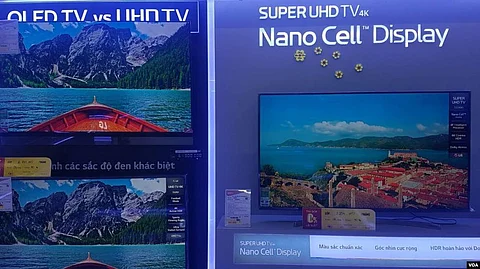FILE – Internet users browse internet near an advertising billboard for 4G connection service at a bus-stop in Hanoi, Vietnam. VOA
Besides the research and development of 5G, companies are using robots in their warehouses, like the country's largest dairy, Vinamilk, and DB Schenker, a German logistics firm operating in Vietnam. FPT, a domestic electronics business, used artificial intelligence to create a chat bot and made it available to third-party software developers. The gaming startup VNG is introducing virtual reality to its players.
It is not all good news. The rise of ride-hailing apps has been linked to a drop in the use of public transit around the world, and that is happening in Vietnam, too. Local press recently reported a decline in bus use, while the increase of ride hailing has led to clogged city streets.
ALSO READ: Scientists Find New Ways of Tracking Objects by Combining DNA of Dust Particles
Even in a best case scenario, there are four potential drawbacks to an increasingly connected Vietnam, according to the report, which is supported by CSIRO's Data61, the data and digital specialist arm of Australia's national science agency. They include more threats to cyber security, higher borrowing to fund infrastructure and technological spending, a shortage of technical talent, and reliance on external companies for products and services. How far Vietnam takes its technological evolution, of course, is up to Vietnam. (VOA)


